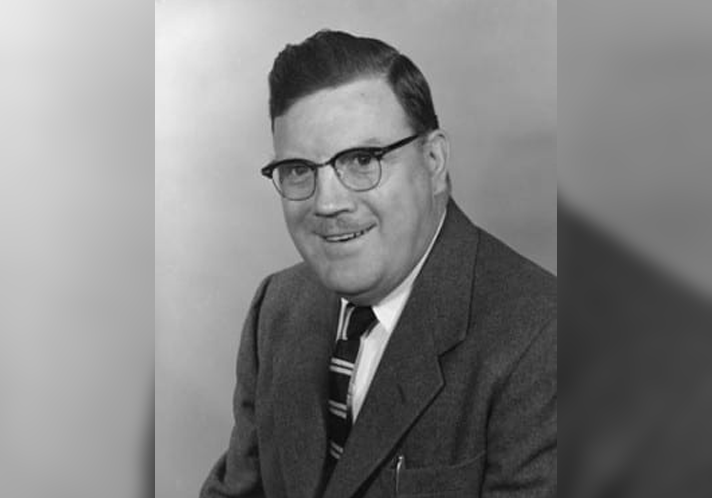Joseph McNerney, D.O.’37, FACOI, was a pioneer and practitioner in internal medicine, a devoted DMU graduate and a lecturer and teacher for more than 50 years. His deep commitment to patient care, osteopathic medicine and medical education inspired and enhanced decades’ worth of students, interns, residents and fellow physicians.
He also was a father of 11 children, who consider him a loving parent, an excellent physician and a role model. To honor his lasting legacy, his daughter Mary Byrd made a gift to Des Moines University’s Purple & Proud Campaign to name one of the treatment rooms on DMU’s new campus as the Dr. Joseph R. McNerney Treatment Room.
Mary also donates to the Joseph R. McNerney, D.O. Award for Excellence in Internal Medicine, which annually recognizes a fourth-year DMU osteopathic medical student who exemplifies her father’s expertise, integrity and dedication.
“I worked in his office in middle school and high school. I know his patients really liked him,” she says. “He would make house calls, and sometimes he would take us along. He was such an example of what a physician should be that two of his sons are Des Moines University graduates, and two of his grandchildren are practicing osteopathic physicians.”
Known by his colleagues as “Papa Joe” McNerney and an outstanding osteopathic physician, Dr. McNerney worked to advance his profession, its growth and the success of other osteopathic physicians. He founded the first intensive-care unit in Iowa, the Harrison Alcohol Treatment Center in Des Moines and the state’s first nuclear medicine program, also in Des Moines. He cofounded the heart clinic at the University of Osteopathic Medicine and Health Sciences, now DMU.
In addition, Dr. McNerney served on the University’s board, including 14 years as chair; was president of the American College of Osteopathic Internists; and was director of internal medicine residency training at Des Moines General Hospital. The Iowa Osteopathic Medical Association named him Physician of the Year in 1984. He died in 1998.
Mary, who was a nurse for about 20 years, chose to honor her father by naming a treatment room because of his clinical and instructional excellence and dedication.
“He loved to teach. After being told of the extreme success of one of his students, he was asked if it bothered him that his student had achieved such extraordinary success, and his response was, ‘No, that means I did my job. One hopes that those you teach will exceed you – that is the point of teaching,’” she recalls. “He was a quintessential example of the concept of treating the whole person in his practice using active listening, knowledge-based intuition and comprehensive medical knowledge.”

